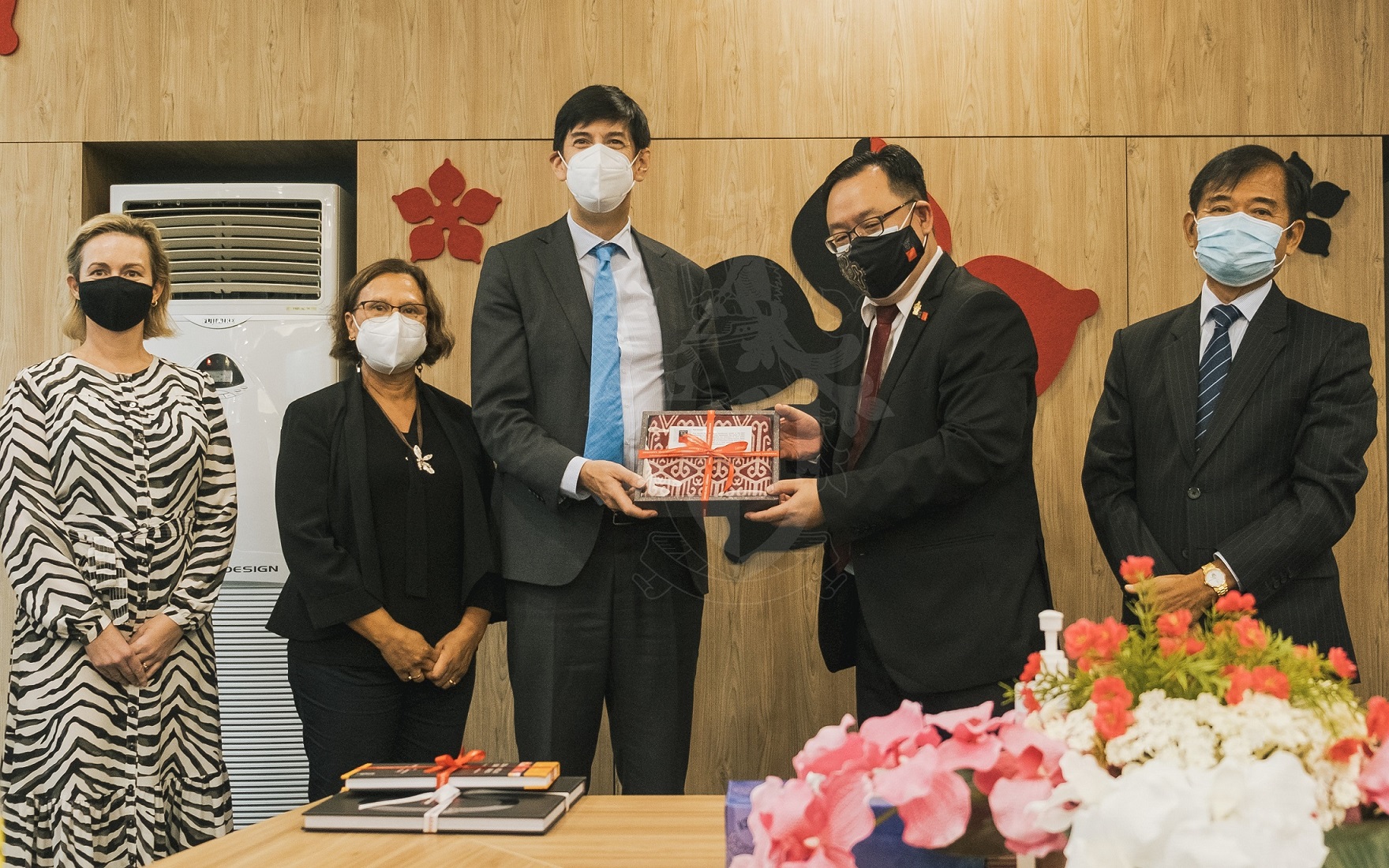KUCHING – Australian High Commissioner to Malaysia His Excellency Dr Justin Lee commended the important contribution of foreign university branch campuses such as Swinburne University of Technology Sarawak Campus, to the bilateral relations between Australia and Malaysia.
His Excellency made the comment during a visit to Swinburne Sarawak, where he was welcomed by its Pro Vice-Chancellor and CEO Ir. Professor Lau Hieng Ho, recently.
Established in Kuching in 2000, Swinburne Sarawak is the international campus of Melbourne’s Swinburne University of Technology. The campus operates as a partnership between the Sarawak Government, via Yayasan Sarawak, and Swinburne Melbourne.
“I want to acknowledge the great contribution from an Australia-Malaysia perspective that universities like Swinburne provides to our relationship. It’s fantastic that Swinburne in Melbourne is able to build this relationship with the Sarawak Foundation (Yayasan Sarawak) and the Sarawak Government,” he said.
“We value the contribution you make from all of those different dimensions – the bi-lateral relationship, the people-to-people ties, economic development contribution, and the quality of education that the university provides.”
Acknowledging the long historical education links between Australia and Sarawak, and generally with Malaysia he said, “The Colombo Plan was a catalyst for the close education ties between our two countries. There are approximately 180,000 Malaysians who call Australia home and also 300,000 who have gone through the education system. This is such an important part of our relationship and fundamentally sets the foundation for everything that has come since.”
At the Q&A with the Swinburne Sarawak senior management team, the High Commissioner was briefed on several fronts including research, industry engagement, and student mobility programmes.
On research Professor Lau said, “The four research centres on the campus cover Sarawak and/or national research interests, for example, sustainable technologies such as in hydrogen economy. We leverage on Swinburne University of Technology Melbourne’s research ecosystem.”
Swinburne Innovation Malaysia CEO Professor Wallace Wong added that the campus started to align its research with the government’s agenda, around 2015.
“When the digital economy was announced and the hydrogen economy was launched, we got more involved and collaborated with our researchers in Melbourne to see how we can apply the technology here,” Professor Wong said.
The High Commissioner later toured the campus, including its research facilities and was briefed by postgraduate students on their biotechnology, engineering, AI and IoT research projects.
On its courses, Academic Executive Dean Ir Professor Sim Kwan Yong explained that the Master of Arts in TESOL and Early Childhood Education were initiated by and introduced to support Sarawak government objectives.
Professor Sim added that prior to the pandemic the campus hosted Australian and European students on its Exchange and Study Abroad programme.
“We also had students from Swinburne’s Hawthorne campus joining our study tours. Swinburne Sarawak is always one of the stops because it covers locations around Asia,” he said.
Before departing, the High Commissioner had a Q&A session with students where he heard about their study experience at Swinburne Sarawak and answered questions on studying, working and living in Australia.
Dr Justin Lee was accompanied by Datuk (Dr) Philip Ting, the Australian Honorary Consul for Sarawak who is also a Swinburne Sarawak Board member, his wife Jeane Lona, the Australian High Commission’s Education Counsellor, Fiona Morris, and Second Secretary, Luke McGreevy.


